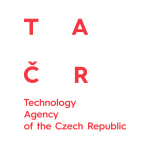Leader of consortium:
Technical University of Liberec
Members of the consortium:
Palacky University Olomouc; Institute of Microbiology, ASCR, v.v.i.
Person responsible:
Description:
Application of membrane technologies for water treatment faces a major problem, and that is mainly biological and microbial fouling of membrane surface, which causes a decrease in permeability and hydraulic power system. After a certain operating time, it is necessary to remove the membrane from the system and subject it to physical and chemical cleaning. This means discontinuity in operation and application of chemical agents, in particular chlorine compounds and organic and inorganic acids, which may pose certain environmental risks. Silver nanoparticles exhibit an extraordinary activity against a wide range of bacteria, yeasts and fungi with very low values of minimal inhibitory concentrations. The activity of silver nanoparticles often exceeds effectiveness of commercial antifungal agents. Suitable anchoring of silver nanoparticles may lead to self-cleaning effect of filters and membranes, and thus to a considerable streamlining of these technologies. In contrast, natural biofilms are promising wastewater treatment technologies with a specific type of pollution.
Role of UPOL is mainly in development of technology of immobilization of metallic silver nanoparticles, in material characterization of prepared materials for subsequent laboratory and pilot plant tests. TUL is responsible for testing of filter materials prepared in laboratory, in terms of mechanical and hydrodynamic properties, filter characteristics and tests of biocidal properties. TUL also develops nano and micro fiber biomass carriers, filter materials with immobilized enzymes for reducing micropollutants, filtration membranes for membrane bioreactors, and laboratory verifies their effectiveness. MBU is in charge of screening of potential enzymatic activities and their determination, as well as in the selection of suitable microbial strains for natural immobilization. MBU is also involved in microbiological testing of materials modified by “nanosilver”. MEGA is responsible for pilot scheme applications and their evaluation (with individual applicators) and makes requests to influence properties of final product. Other commercial consortium partners provide locations for testing of technologies, which were developed on water with different types of pollution, and contributes to implementation of technologies.
The main objective of this work package is research, development and pilot plant modification of separation technologies using properly chosen nanomaterials, and/ or carriers of properly chosen biomass for environmentally friendly water treatment and subsequent commercialization.
Outputs:
- Development, optimization and verification of technologies of covalent immobilization of silver nanoparticles on fibers of filters and membranes for antimicrobial water treatment.
- Development, optimization and verification of technologies using micro and nano fibers as carriers (mainly biomass and enzymes) in technologies of wastewater treatment.


